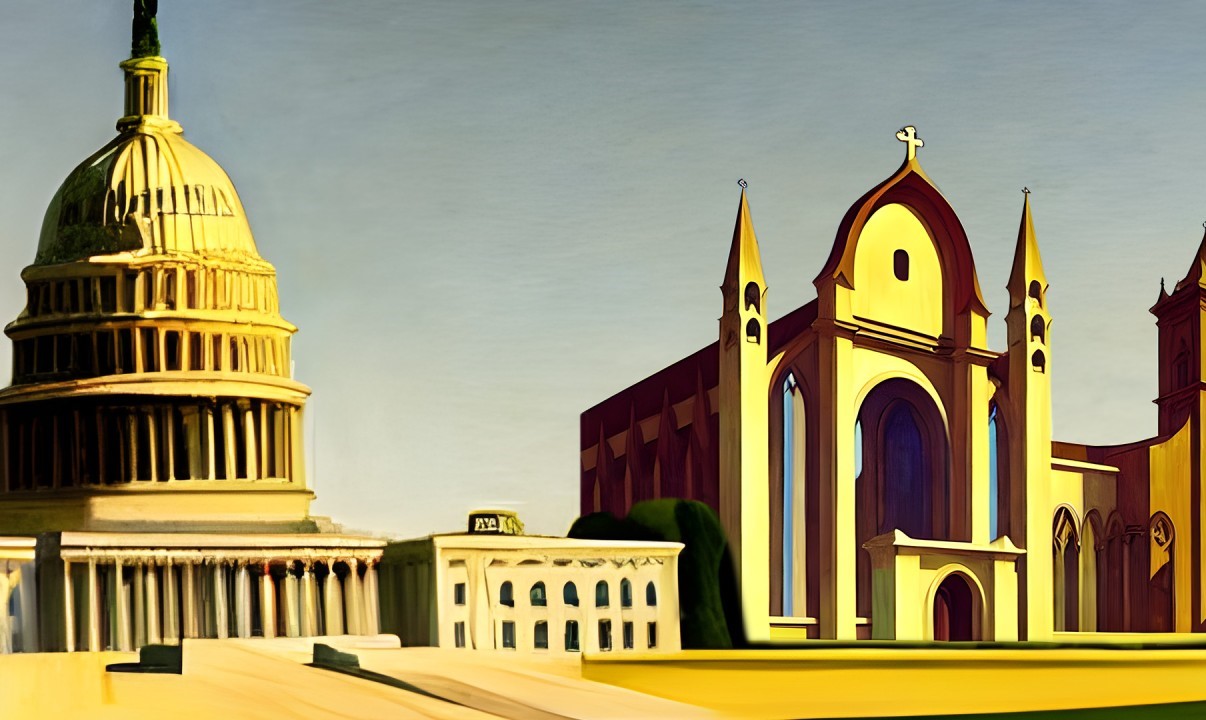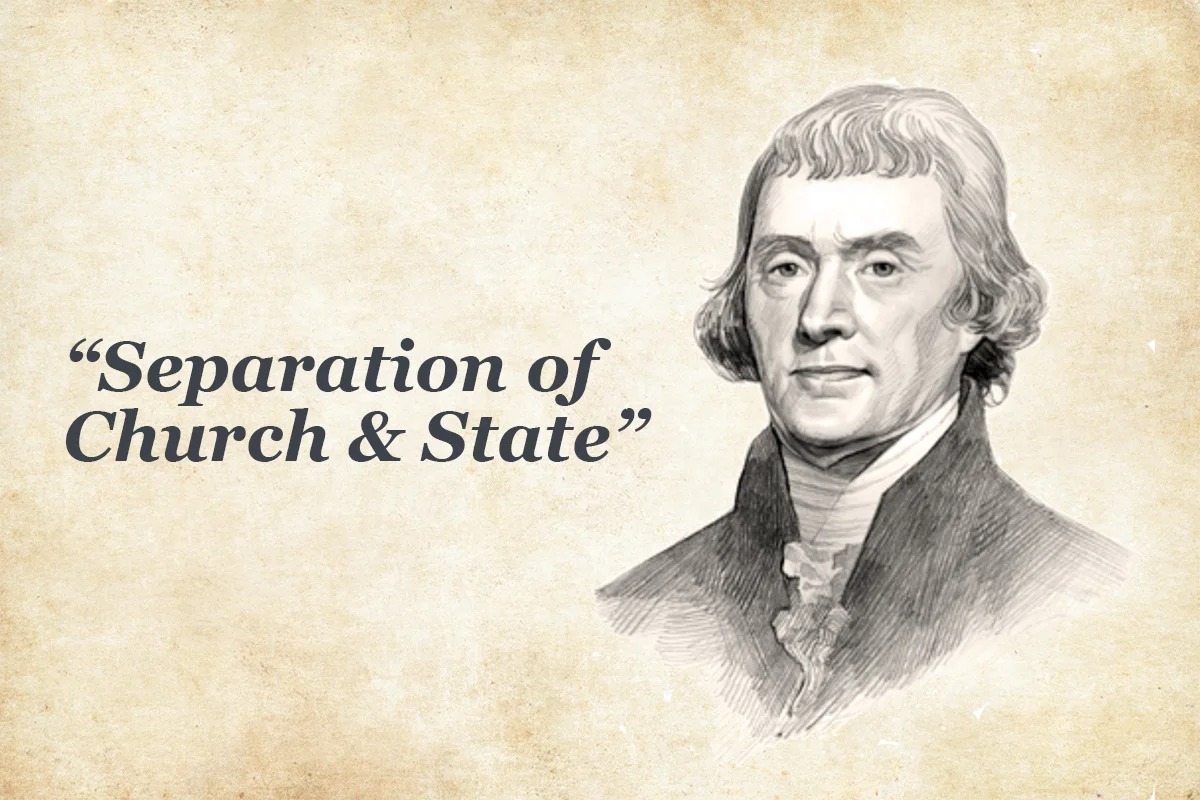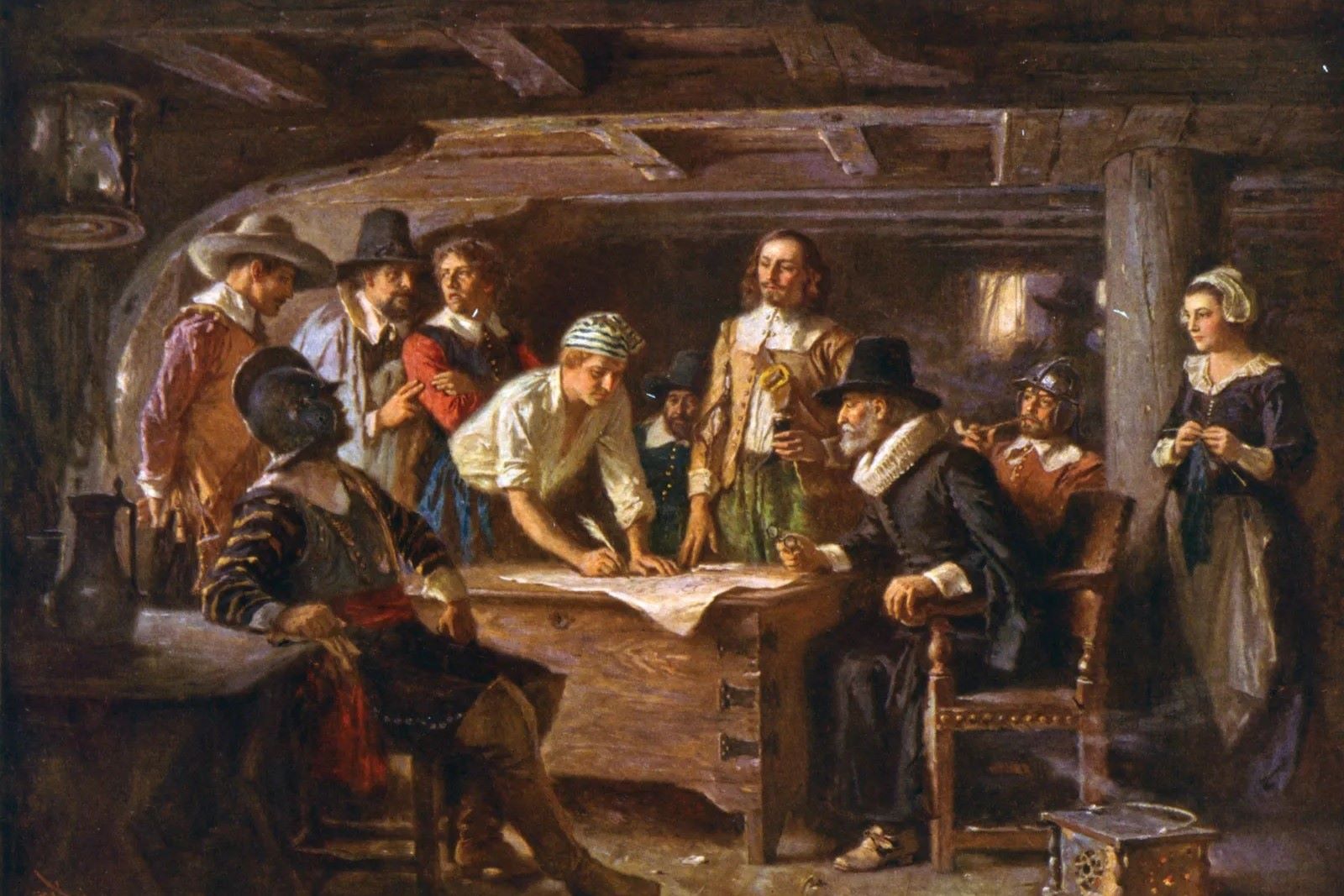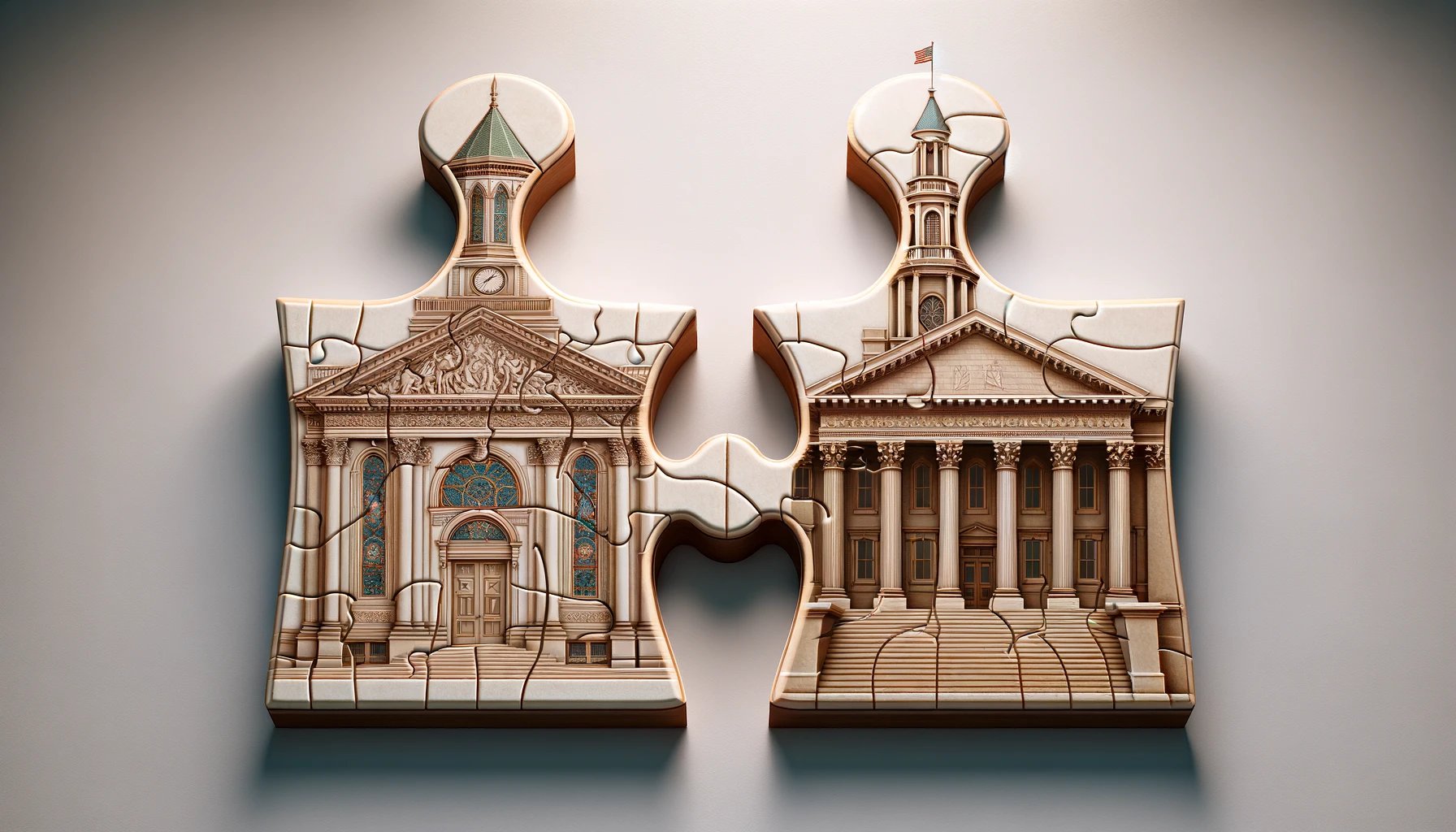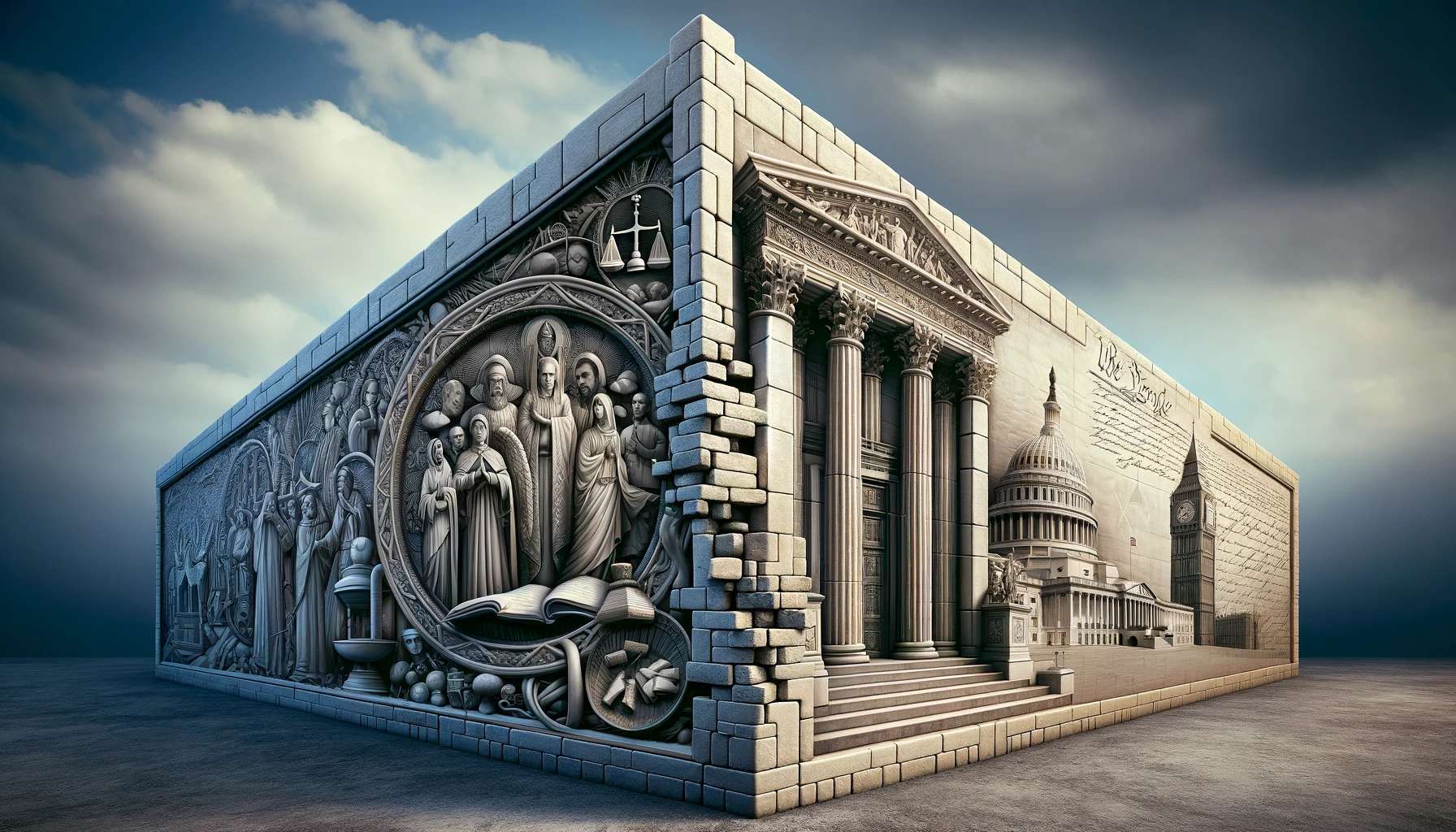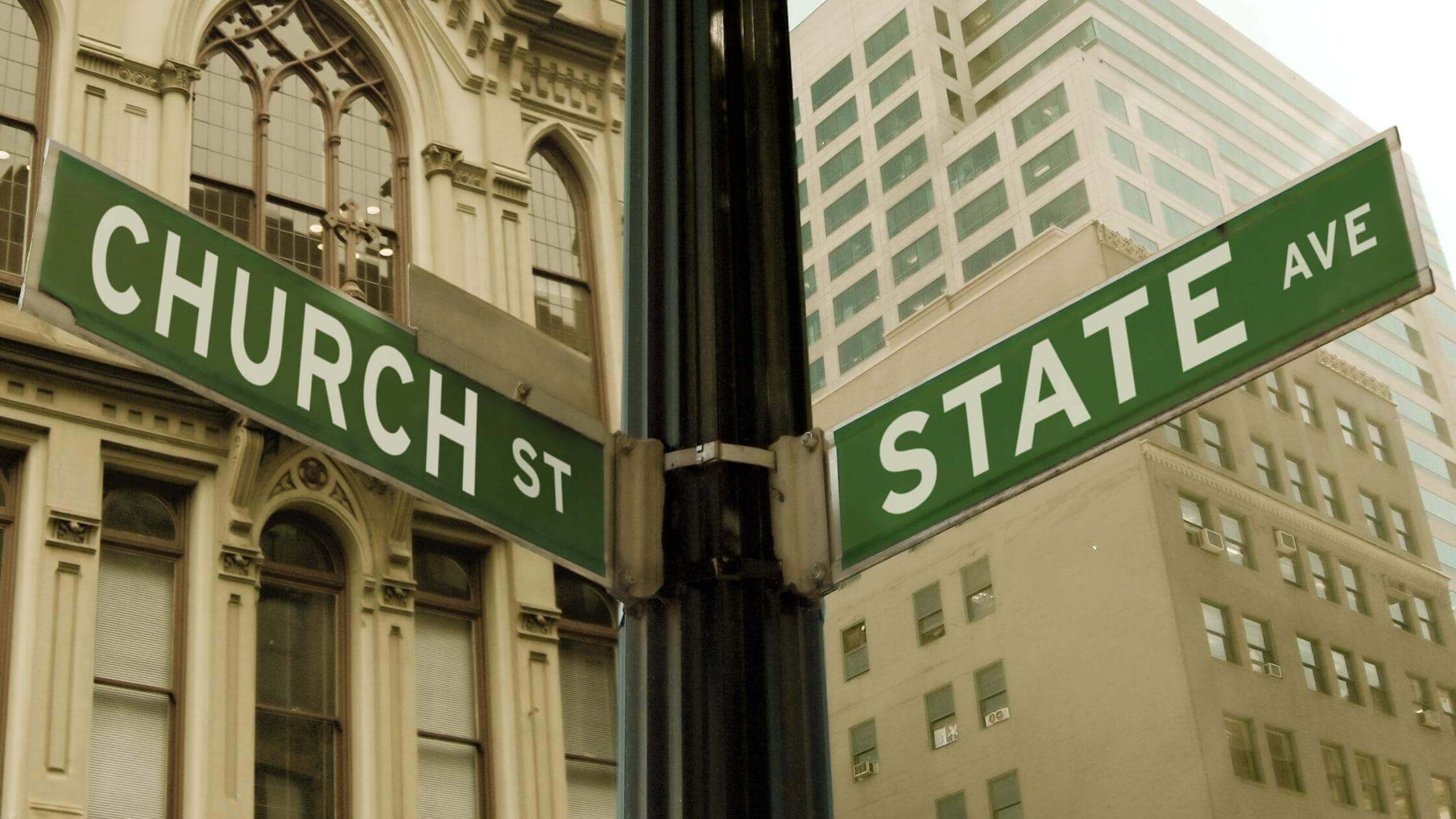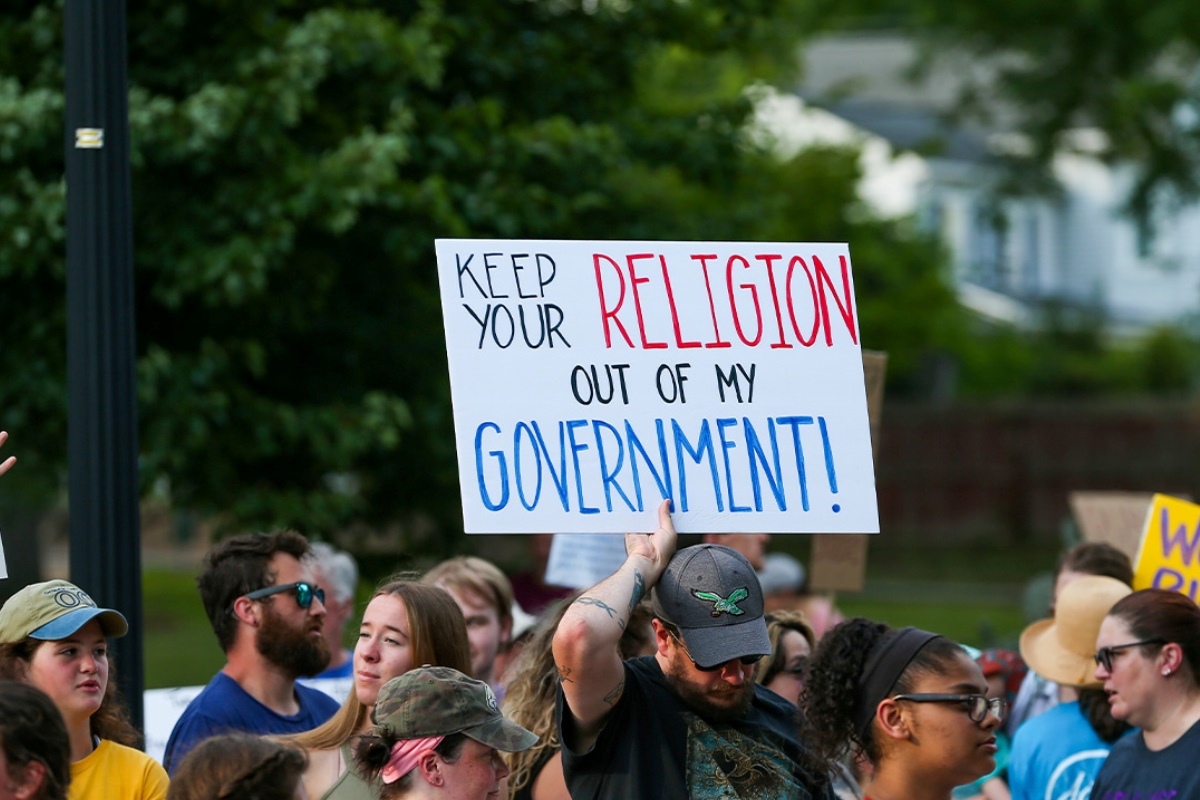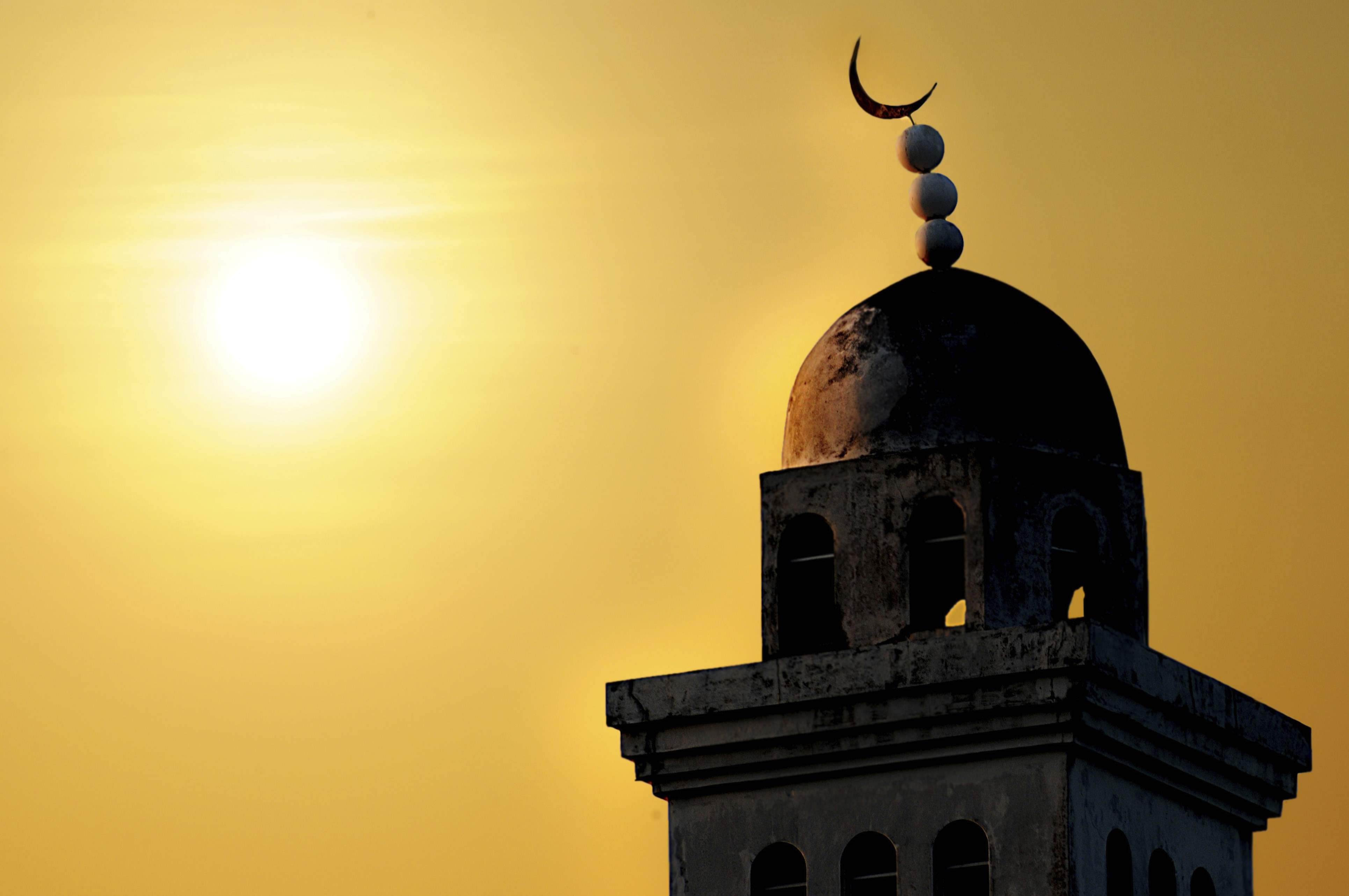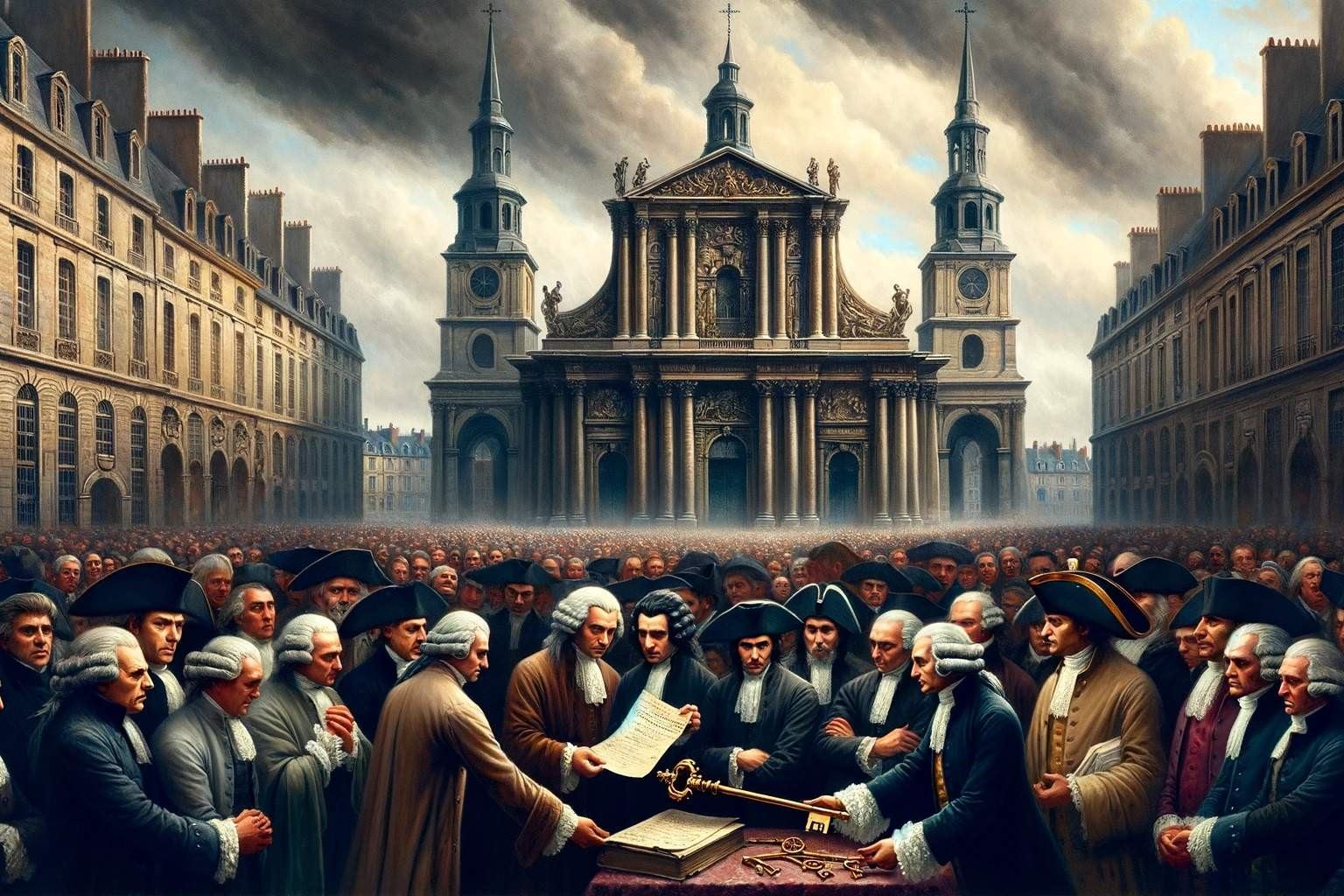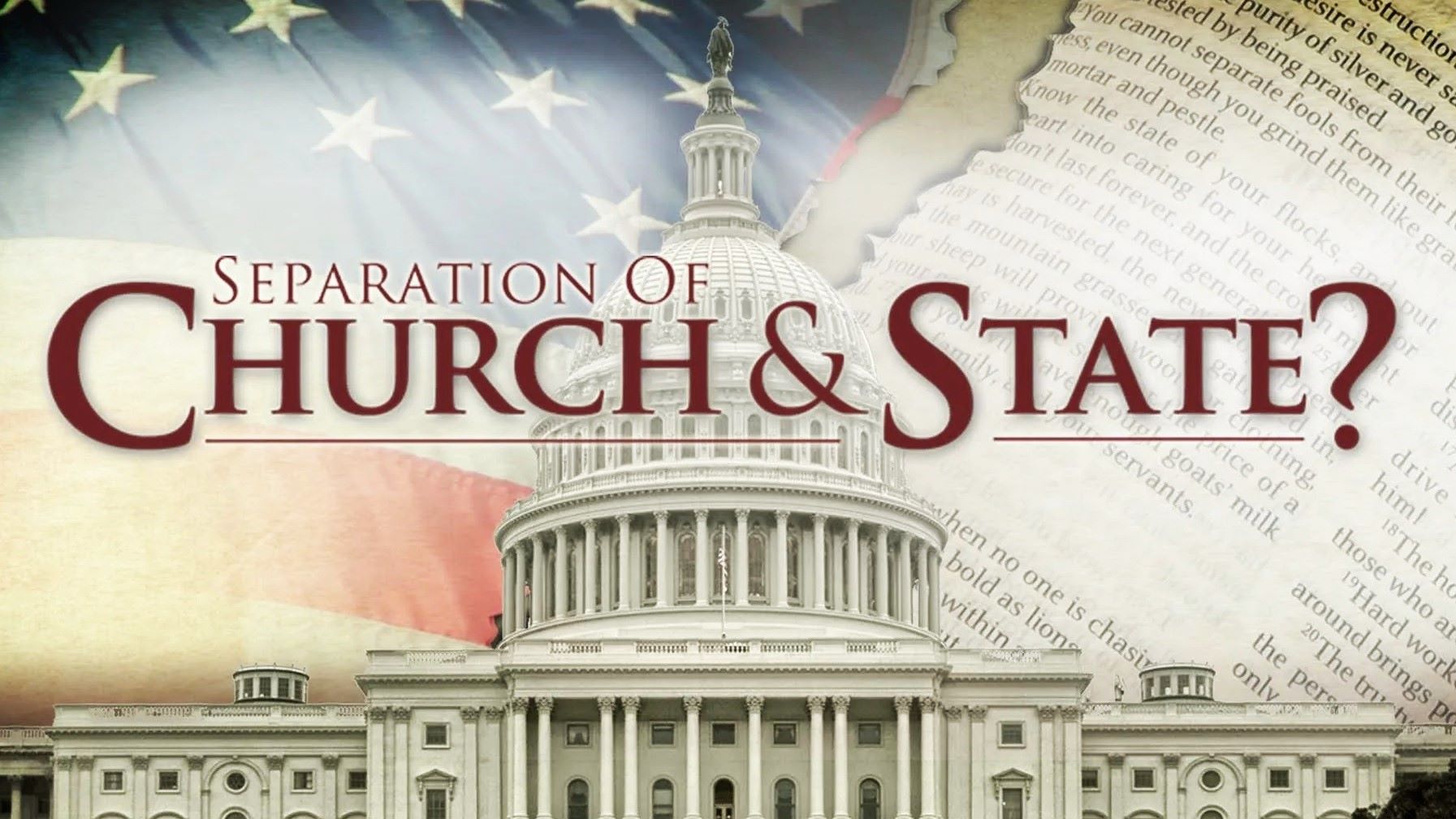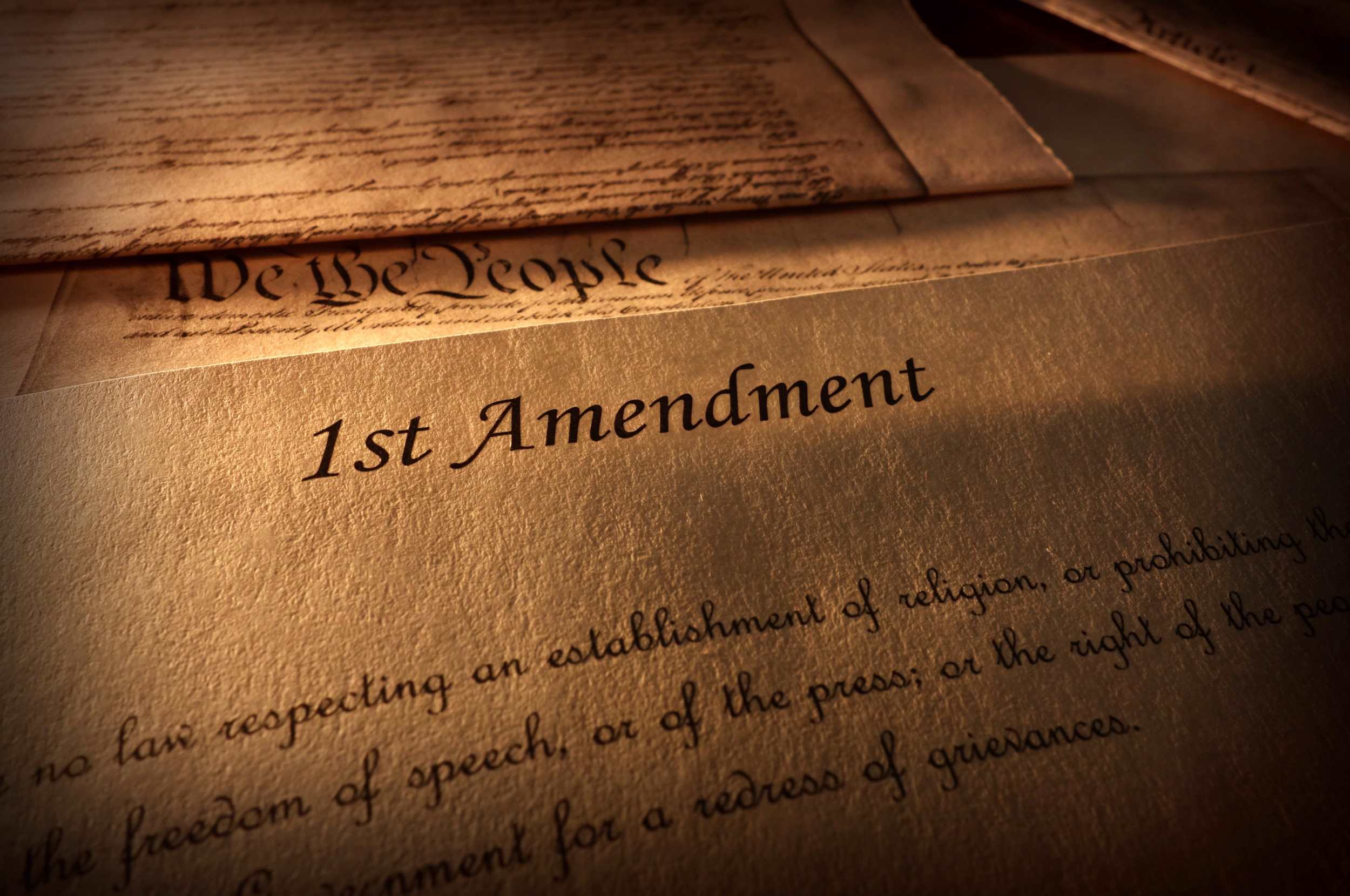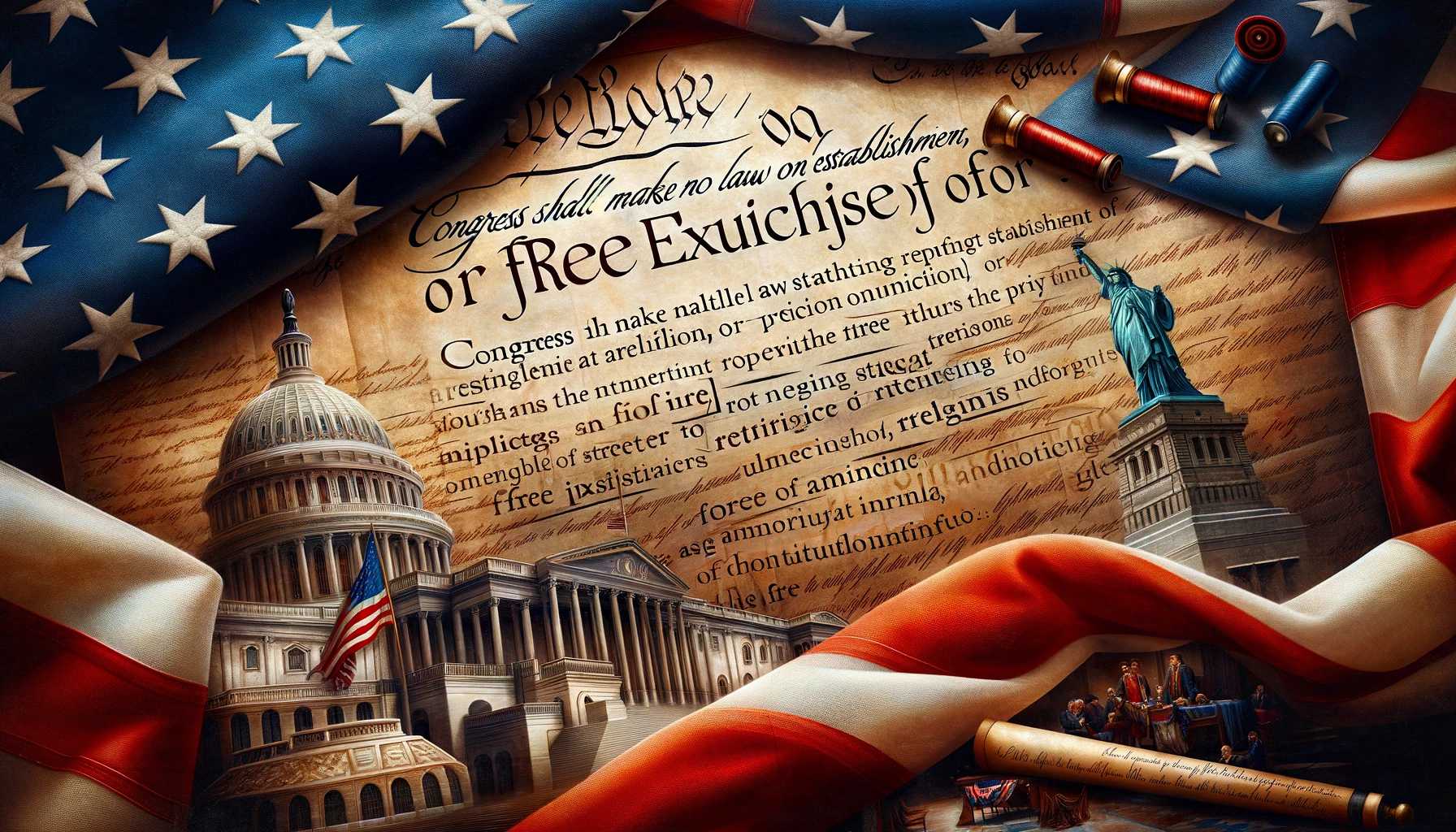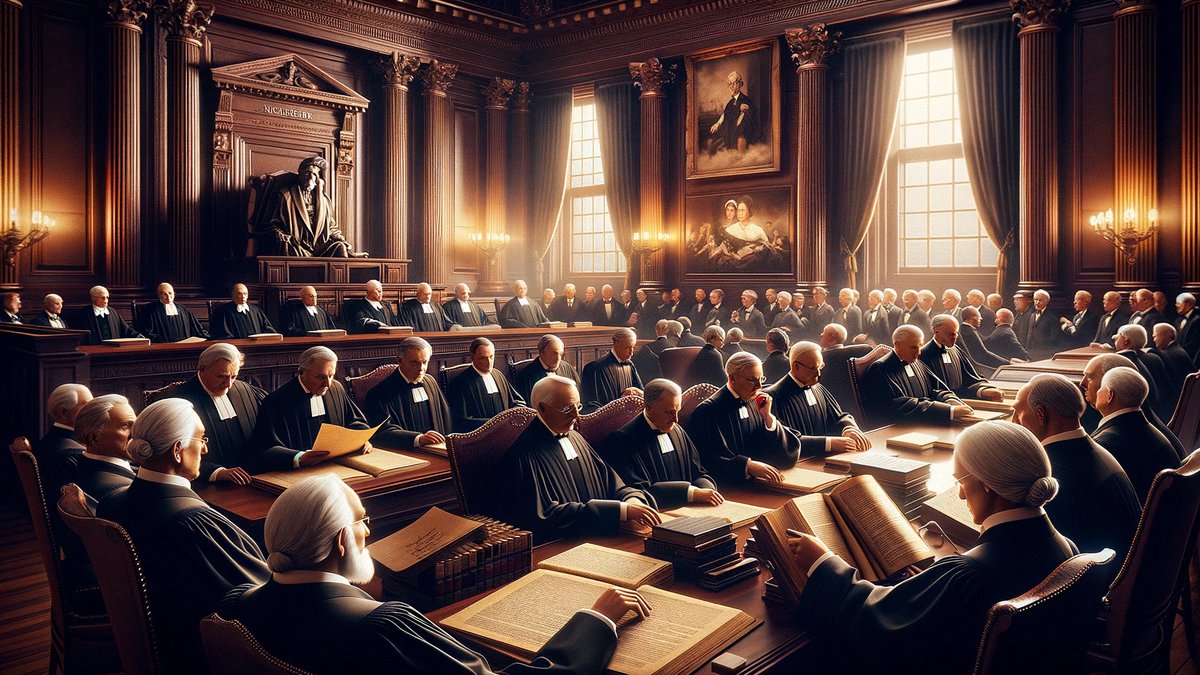Home>Theology and Spirituality>Concerns About Separation Of Church And State Primarily Relate To Which Two Issues?
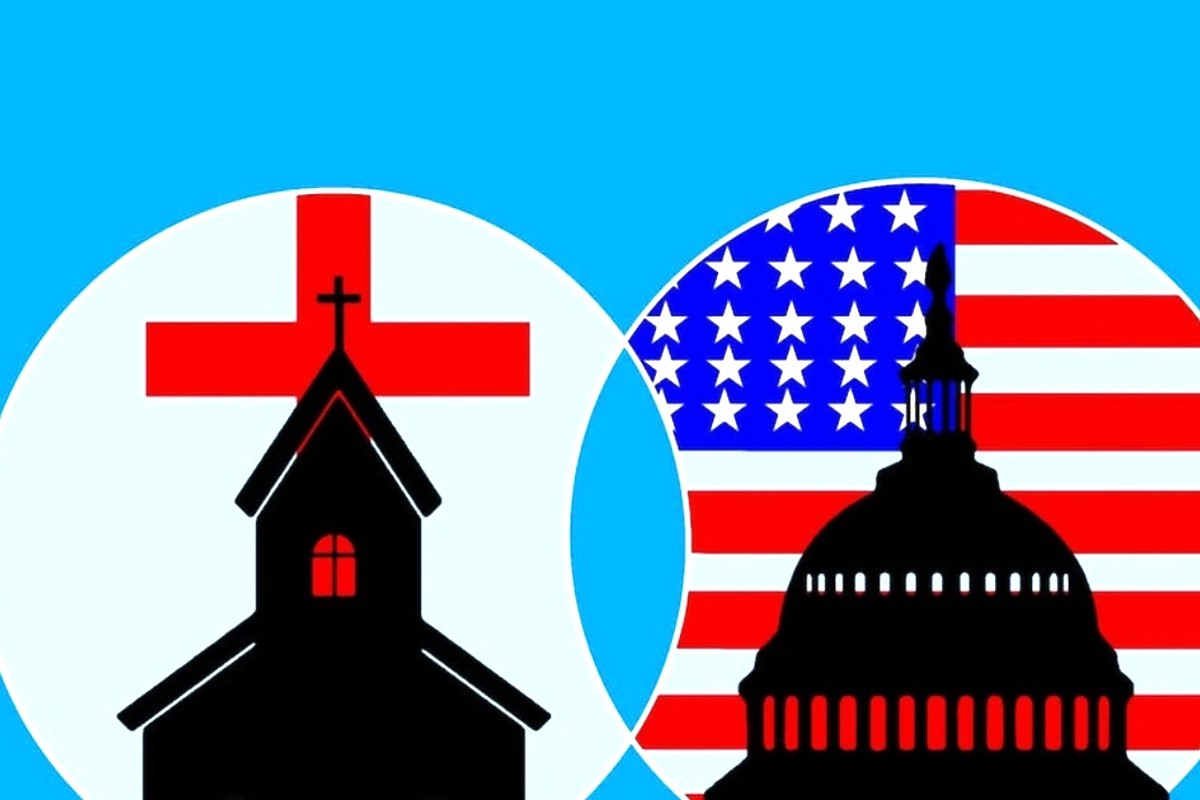

Theology and Spirituality
Concerns About Separation Of Church And State Primarily Relate To Which Two Issues?
Published: February 11, 2024
Ericka Andersen, an editor at Christian.net, expertly merges digital strategy with content creation, focusing on faith and societal issues. Her communication skills enhance the platform's engaging narratives, fostering meaningful dialogue on belief's impact on society.
The concerns about separation of church and state primarily relate to the issues of religious freedom and government neutrality in matters of theology and spirituality. Learn more about the impact of this important principle.
(Many of the links in this article redirect to a specific reviewed product. Your purchase of these products through affiliate links helps to generate commission for Christian.net, at no extra cost. Learn more)
Table of Contents
Introduction
The concept of the separation of church and state has been a topic of significant debate and controversy throughout history. It primarily relates to two critical issues: the protection of religious freedom and the prevention of religious influence on government policies. This fundamental principle is rooted in the belief that the government should remain neutral in matters of religion, ensuring that individuals have the freedom to practice their faith without interference from the state.
The separation of church and state is a cornerstone of modern democratic societies, aiming to strike a delicate balance between religious autonomy and governmental authority. This principle is deeply intertwined with the First Amendment of the United States Constitution, which prohibits the establishment of a state religion and safeguards the rights of individuals to freely exercise their religious beliefs.
Throughout the centuries, the relationship between religion and government has been a complex and often contentious issue. The historical context of this separation can be traced back to the European Enlightenment, where philosophers and political thinkers advocated for the disentanglement of religious institutions from the mechanisms of state power. This movement sought to mitigate the influence of religious authorities on governance and decision-making, ultimately paving the way for the establishment of secular governance.
As societies evolved and diversified, the need to uphold the separation of church and state became increasingly evident. It became essential to ensure that individuals from various religious backgrounds, as well as those who identify as non-religious, are treated equally under the law and are not subjected to discrimination based on their beliefs or lack thereof.
In the following sections, we will delve into the historical underpinnings of the separation of church and state, explore its implications for religious freedom and public policy, and examine the ongoing debates surrounding the role of religion in education and government funding for religious organizations. Through this exploration, we aim to gain a deeper understanding of the complexities and nuances inherent in the relationship between religion and the state in contemporary society.
The History of Separation of Church and State
The history of the separation of church and state is a rich tapestry woven with the threads of political, religious, and philosophical developments spanning centuries. Its origins can be traced back to ancient civilizations, where the intertwining of religious and political authority was the norm. However, the concept as it is understood today has its roots in the European Enlightenment, a period marked by a fervent intellectual and philosophical renaissance.
During the Enlightenment, prominent thinkers such as John Locke and Voltaire advocated for the disentanglement of religious institutions from the mechanisms of state power. Their writings and ideas laid the groundwork for the principles of religious freedom and the separation of church and state. These principles gained further traction during the American and French Revolutions, where the call for individual liberties, including the freedom of religion, reverberated throughout the Western world.
In the United States, the concept of the separation of church and state found expression in the First Amendment to the Constitution, which states, "Congress shall make no law respecting an establishment of religion, or prohibiting the free exercise thereof." This pivotal amendment enshrined the principle of religious neutrality in the governance of the nation, ensuring that the government does not favor or endorse any particular religious belief or practice.
Similarly, in France, the concept of laïcité, or secularism, was enshrined in the French Constitution, emphasizing the neutrality of the state in religious matters. These historical milestones marked a significant departure from the centuries-old practice of intertwining religious and political authority, ushering in an era where the state's role in religious affairs was distinctly separate.
The history of the separation of church and state is a testament to the evolving relationship between religion and governance. It reflects the enduring quest for a society where individuals are free to practice their faith or choose not to, without fear of persecution or coercion by the state. This historical trajectory has shaped the modern understanding of religious freedom and the delicate balance between individual beliefs and the governance of diverse societies.
As we navigate the complexities of contemporary society, understanding the historical foundations of the separation of church and state provides valuable insights into the ongoing discourse surrounding religious autonomy, governmental authority, and the quest for a just and inclusive society.
The First Amendment and Religious Freedom
The First Amendment of the United States Constitution stands as a pillar of protection for religious freedom, embodying the fundamental principle of the separation of church and state. It comprises two essential clauses: the Establishment Clause and the Free Exercise Clause, both of which serve to safeguard individuals' rights to practice their faith without governmental interference.
The Establishment Clause prohibits the government from establishing an official religion or favoring one religion over others. This foundational tenet ensures that the state remains neutral in matters of religion, preventing the imposition of a state-sanctioned belief system on its citizens. It also serves to protect individuals from religious coercion by the government, fostering a society where diverse religious beliefs and non-belief coexist without prejudice.
Complementing the Establishment Clause, the Free Exercise Clause guarantees individuals the right to freely exercise their chosen religion without impediment from the government. This clause ensures that individuals can worship, observe religious practices, and express their beliefs without fear of persecution or discrimination. It underscores the principle that religious freedom extends beyond the private sphere, allowing individuals to manifest their beliefs in public and participate in religious communities without governmental constraints.
The First Amendment's protection of religious freedom has played a pivotal role in shaping the cultural and social landscape of the United States. It has provided a framework for the peaceful coexistence of diverse religious traditions, fostering a society where individuals are free to embrace their faith or choose not to adhere to any religious beliefs. This constitutional safeguard has also been instrumental in promoting tolerance, understanding, and respect for differing religious perspectives, contributing to the rich tapestry of religious pluralism in the nation.
Moreover, the First Amendment's commitment to religious freedom has been tested and reaffirmed through landmark legal cases that have shaped the interpretation and application of its clauses. These cases have addressed issues such as religious expression in public spaces, the accommodation of religious practices in various contexts, and the boundaries of government involvement in religious affairs. Through these legal precedents, the First Amendment continues to serve as a bulwark against encroachments on religious liberty and as a guiding light for navigating the complexities of religious diversity within a pluralistic society.
In essence, the First Amendment's protection of religious freedom stands as a testament to the enduring commitment to individual autonomy in matters of faith and belief. It reflects the foundational values of liberty, equality, and pluralism, underscoring the importance of upholding the separation of church and state to ensure a society where religious diversity thrives, and individuals are free to embrace their beliefs without governmental constraint.
The Role of Religion in Public Policy
The intersection of religion and public policy has been a subject of profound significance, shaping the discourse and decision-making processes within governmental bodies. Religion often plays a pivotal role in influencing public policy, as it reflects the values, beliefs, and moral frameworks held by individuals and communities. The impact of religion on public policy can be observed across a spectrum of issues, ranging from social welfare and healthcare to civil rights and ethical considerations.
Religious perspectives and teachings frequently inform the ethical and moral dimensions of public policy debates. For instance, discussions surrounding issues such as abortion, end-of-life care, and marriage equality often intersect with religious beliefs and doctrines. The moral stances espoused by religious communities can significantly influence the formulation and implementation of policies in these areas, reflecting the deeply ingrained ethical considerations derived from religious traditions.
Moreover, religious organizations and leaders often engage in advocacy and lobbying efforts to shape public policy in alignment with their religious values and principles. These efforts may encompass initiatives related to poverty alleviation, refugee resettlement, environmental stewardship, and other social justice concerns. The involvement of religious entities in public policy advocacy underscores the significant role they play in advancing moral imperatives and addressing societal challenges through legislative and policy channels.
In addition to advocacy, religious institutions frequently provide essential social services, including healthcare, education, and charitable assistance. The provision of these services can have a direct impact on public policy discussions, particularly in areas related to healthcare funding, education policies, and social welfare programs. The influence of religious organizations in delivering critical services further underscores their role in shaping public policy outcomes and addressing societal needs.
However, the role of religion in public policy is not without controversy, as differing religious perspectives may lead to contentious debates and conflicting policy objectives. Striking a balance between respecting diverse religious viewpoints and upholding the principles of secular governance poses a significant challenge for policymakers. The need to navigate these complexities while ensuring the equitable treatment of individuals from diverse religious and non-religious backgrounds remains a central concern in the realm of public policy.
As societies continue to grapple with complex ethical, social, and humanitarian issues, the role of religion in public policy will persist as a dynamic and multifaceted aspect of governance. Understanding and engaging with the diverse religious perspectives that inform public policy debates is essential for fostering inclusive and equitable policy outcomes that reflect the pluralistic nature of modern societies. The ongoing dialogue surrounding the intersection of religion and public policy underscores the enduring relevance of this complex and nuanced relationship in shaping the fabric of governance and societal well-being.
The Influence of Religion on Education
The influence of religion on education has been a subject of enduring significance, shaping the curricula, values, and cultural fabric of educational institutions across the globe. Religious beliefs and teachings have historically played a pivotal role in shaping educational systems, influencing the moral and ethical frameworks within which knowledge is imparted and assimilated.
Religious education, often integrated into school curricula, serves as a means of transmitting religious doctrines, moral principles, and cultural traditions to the younger generation. It provides students with an understanding of the beliefs, practices, and narratives associated with various religious traditions, fostering a sense of cultural awareness and ethical grounding. Moreover, religious education can contribute to the cultivation of values such as compassion, empathy, and social responsibility, which are often rooted in religious teachings.
In addition to formal religious education, the influence of religion permeates various aspects of academic discourse and institutional ethos. Educational institutions founded on religious principles often imbue their educational philosophy with the values and tenets of their respective faith traditions. This influence can manifest in the promotion of moral education, the integration of religious themes in literature and history, and the cultivation of a holistic approach to intellectual and spiritual development.
Furthermore, the influence of religion on education extends beyond the confines of formal schooling, encompassing the realm of higher learning and academic research. The scholarly exploration of religious texts, theological studies, and the examination of religious history and philosophy contribute to the rich tapestry of academic inquiry. These pursuits not only deepen our understanding of diverse religious traditions but also foster critical thinking, intercultural dialogue, and the exploration of existential questions that transcend disciplinary boundaries.
However, the influence of religion on education also raises complex and contentious issues, particularly concerning the balance between religious instruction and secular learning. The tension between religious autonomy and academic freedom, as well as the need to uphold pluralism and inclusivity within educational settings, underscores the multifaceted nature of this influence.
As societies navigate the complexities of religious diversity and educational imperatives, the influence of religion on education remains a dynamic and evolving aspect of the educational landscape. Engaging with the multifaceted dimensions of this influence is essential for fostering inclusive and equitable educational environments that honor diverse religious perspectives while upholding the principles of academic rigor and intellectual inquiry.
The influence of religion on education is a testament to the enduring interplay between faith, knowledge, and societal values, reflecting the intricate tapestry of human experience and the quest for holistic and meaningful education.
The Debate Over Government Funding for Religious Organizations
The debate over government funding for religious organizations is a complex and contentious issue that intersects with the principles of the separation of church and state, religious autonomy, and the allocation of public resources. At the heart of this debate lies the question of whether government funds should be allocated to religious entities for the provision of social services, educational programs, and community initiatives.
Proponents of government funding for religious organizations argue that these entities play a vital role in addressing societal needs, particularly in areas such as healthcare, education, and social welfare. They contend that religious organizations often have extensive community networks and resources, enabling them to effectively deliver essential services to vulnerable populations. Advocates also emphasize the constitutional protection of religious freedom, asserting that denying government funding to religious organizations may constitute discrimination based on religious affiliation.
Conversely, opponents raise concerns regarding the potential entanglement of government and religious institutions. They argue that allocating public funds to religious organizations may violate the principle of the separation of church and state, as enshrined in the First Amendment. Critics also express apprehensions about the potential for religious discrimination in the delivery of services, as well as the lack of oversight and accountability in the use of government funds by religious entities.
The debate over government funding for religious organizations encompasses a spectrum of perspectives, reflecting the complexities of balancing religious autonomy, public service provision, and constitutional principles. It necessitates a nuanced examination of the legal, ethical, and practical implications of allocating public funds to religious entities, as well as the potential impact on religious pluralism and social welfare.
As societies continue to grapple with this multifaceted debate, the need for thoughtful deliberation and inclusive dialogue remains paramount. Finding a balance that respects religious freedom, upholds the principles of secular governance, and ensures equitable access to essential services is essential for navigating the complexities inherent in the debate over government funding for religious organizations.
Conclusion
In conclusion, the concept of the separation of church and state encompasses critical issues related to religious freedom and the prevention of religious influence on government policies. Throughout history, the evolution of this principle has been shaped by philosophical, political, and legal developments, culminating in the enshrinement of religious neutrality in the governance of modern democratic societies.
The historical foundations of the separation of church and state, rooted in the European Enlightenment and enshrined in constitutional provisions such as the First Amendment, underscore the enduring commitment to safeguarding religious freedom and ensuring the autonomy of individuals in matters of faith. This principle has played a pivotal role in shaping the cultural, social, and legal landscapes of nations, fostering inclusive and pluralistic societies where diverse religious beliefs and non-belief coexist harmoniously.
The First Amendment's protection of religious freedom, with its Establishment and Free Exercise Clauses, stands as a testament to the foundational values of liberty, equality, and pluralism. It has provided a framework for the peaceful coexistence of diverse religious traditions, promoting tolerance, understanding, and respect for differing religious perspectives.
Moreover, the intersection of religion and public policy, the influence of religion on education, and the debate over government funding for religious organizations underscore the multifaceted nature of the relationship between religion and the state. These complex dynamics necessitate thoughtful deliberation, inclusive dialogue, and a commitment to upholding the principles of religious freedom, secular governance, and equitable access to essential services.
As societies continue to navigate the complexities of religious diversity and governance, the enduring relevance of the separation of church and state remains paramount. Upholding this principle requires a delicate balance between respecting religious autonomy and ensuring the equitable treatment of individuals from diverse religious and non-religious backgrounds. It also calls for a commitment to fostering inclusive and equitable societies where individuals are free to embrace their beliefs without governmental constraint.
In essence, the separation of church and state serves as a cornerstone of democratic governance, reflecting the enduring quest for a just and inclusive society where individuals are free to practice their faith or choose not to, without fear of persecution or coercion by the state. By embracing the complexities and nuances inherent in the relationship between religion and the state, societies can strive towards a future where religious freedom and secular governance coexist harmoniously, enriching the fabric of diverse and inclusive societies.
